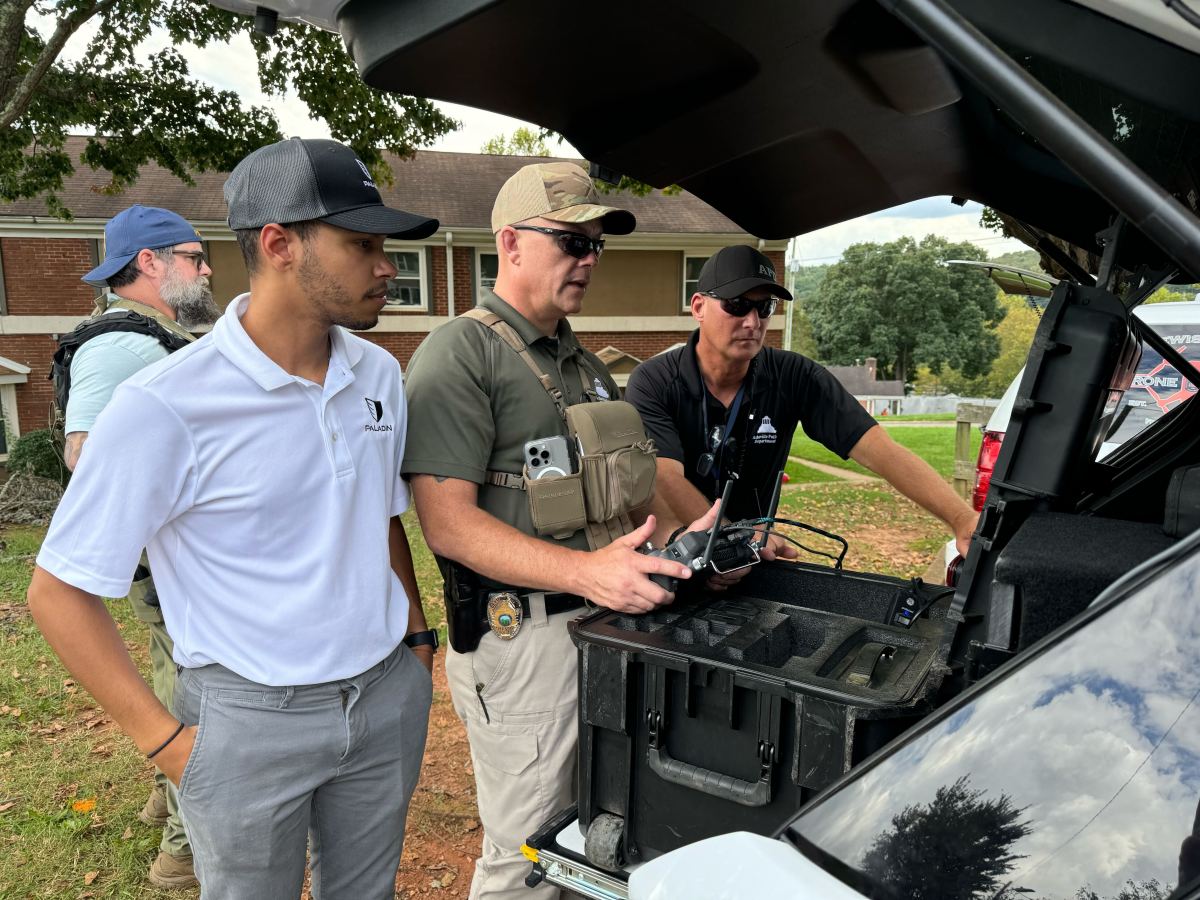When Hurricane Helene hit Asheville, North Carolina in September, the city’s police department reached out to public safety drone startup Paladin for help. The startup’s 30-member team jumped into action working nights and through the weekend to assist Asheville’s police department with locating people and dropping off supply.
Asheville was a Paladin customer and its team was able to help because its software could control drones remotely from the company’s Houston headquarters, Paladin co-founder and CEO Divy Shrivastava told TechCrunch. This allowed Paladin’s tech to make a big difference in spite of Asheville’s closed roads and lack of cell phone or internet service on the ground.
“I think it has painted a clear picture for me of what the future of the drone industry will look like,” Shrivastava said. “We were grateful that Asheville trusted us to help.”
While able to help in a natural disaster, Paladin was launched as first responder technology meant to help to reduce the time between a 911 call and help being on the way, Shrivastava said.
Palain’s software is designed to work with any drone, and to be easy to use, Shrivastava said. When a 911 dispatcher gets a call, a Paladin-powered drone is dispatched within 90 seconds to the scene of the call. The public safety department can then see the situation from its office to determine what kinds of resources need to be sent, if any.
The motive behind Paladin is a personal one. When Shrivastava was 17 years old and living in Ohio, his friend’s house caught on fire. While 911 had been called right away, first responders took a while to get there, having gone to the wrong address. The house ended up burning to the ground and the experience stuck with Shrivastava.
“I got really obsessed with this problem of not having modern infrastructure for public safety,” Shrivastava said. “It seemed obvious at that point, the problems were slow response times and lack of situational awareness. A drone has a camera and can bridge the gap in information. You’ll be looking at a live feed of exactly what the emergency is.”
Shrivastava started working on this idea while doing the Thiel Fellowship, an incubator program led by Peter Thiel. He formally launched the company in 2018 and started selling in 2021. Since then the company has landed contracts with dozens of public safety departments, it says, and is seeing its revenue nearly double quarter over quarter.
Paladin recently raised a $5.2 million seed round led by Gradiant, Google’s early-stage AI fund, with participation from Khosla Ventures, 1517, and Toyota Ventures, among others. The raise will be used to continue to build out Paladin’s software capabilities, and to put resources toward getting the company’s name out there more, Shrivastava said.
In addition to the funding, the company also announced a host of new capabilities for its drone software including the ability for drones to drop off supplies at a 911 call, like Narcan or life vests, and the ability for drones to spot and navigate around other aircraft.
Shrivastava said that the company has not only been able to help reduce the time between a 911 call and its response but also help clear 10-25% of 911 calls that are either false or miscalls that don’t require a response at all. He added that clearing unnecessary calls makes a huge difference because many police departments are short on officers and resources.
“The majority of departments, they have less than 50 sworn officers,” Shrivastava said. “One piece of technology that is making you 25% more efficient is significant. What is sometimes easy to forget is the majority of the country are very small towns with limited resources. These are problems they see all the time.”
Shrivastava knows what some people will think when they hear Paladin is helping equip police departments with drones — that they will be used for surveillance or for patrolling in general. He said Paladin was really intentional about its software’s use cases and said its designed to only activate in response to a 911 call.
He added they are also compliant with drone regulations in all 50 states and that the drones won’t start taking video until they arrive at their destination.
Using technology to make public safety work better is an area seeing more interest from entrepreneurs as of late. Prepared is another startup building in this space with a similar mission. Prepared is building a system to help 911 dispatchers by giving them a more complete picture of what is happening at the site of a call using video. Prepared has raised more than $70 million in venture capital.
Shrivastava said that demand is there from public safety departments and that the startup is now getting multiple inbound requests for the tech a week.
“We are still early in terms of the entire market,” Shrivastava said. “We are in dozens of cities right now and have scaled pretty quickly, but that is less than 0.1% of the market.”

